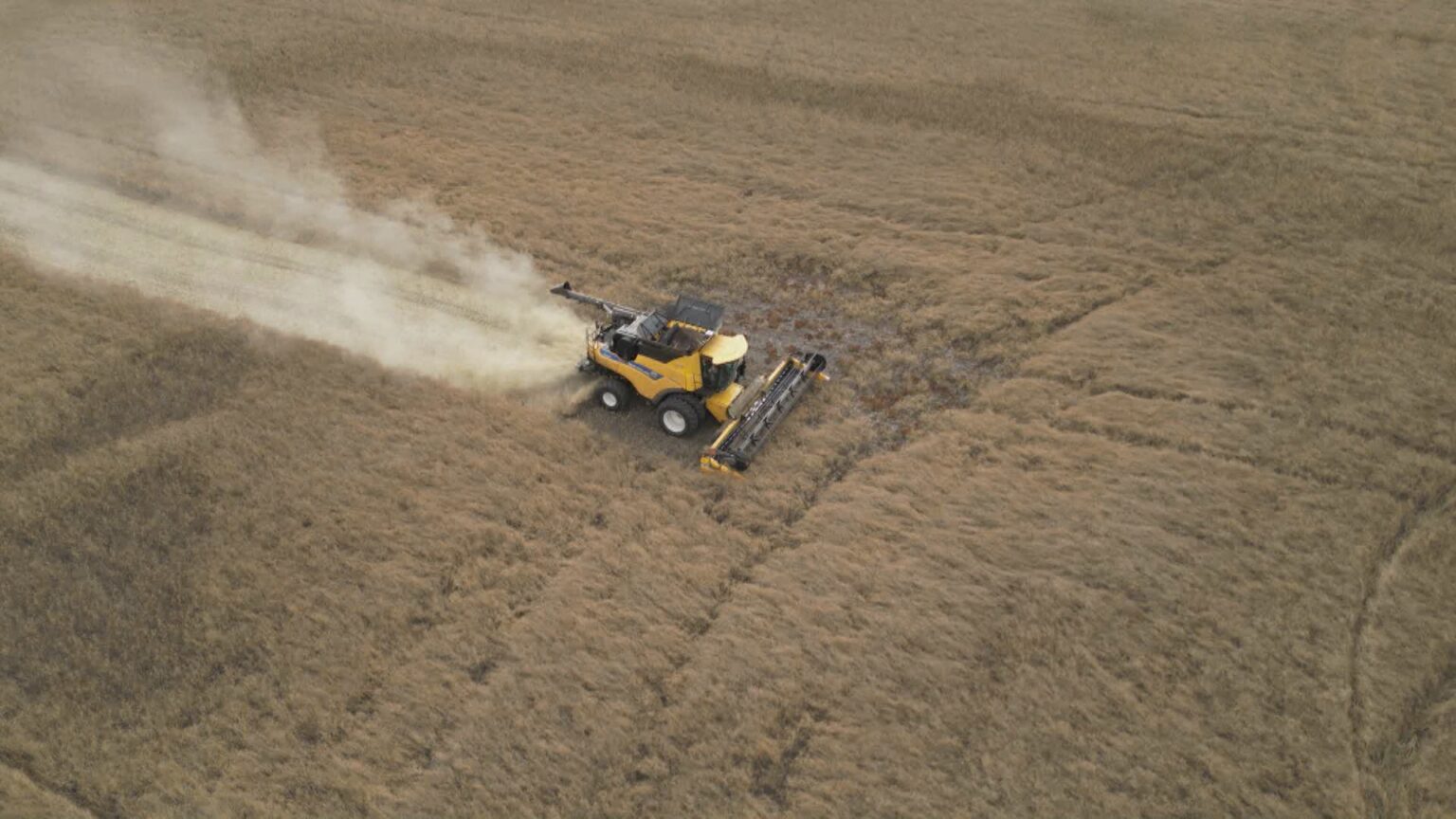As Canadians prepare for the return of autumn, farmers are in the midst of harvest season and while the rate of growth varies across the country, many are keeping close eyes on the market amid trade uncertainty.
Saskatchewan, for example, saw slow progress last week due to a mix of scattered rain and humid mornings that made for short harvest days, according to the province’s crop report.
In Alberta, it was sunny on Tuesday, giving farmer John McKee the perfect conditions to spend hours harvesting after he said good rainfall provided a good growing season.
“Mother Nature cooperated and we have a good crop here in southern Alberta,” he told Global News. “Harvest is always an exciting, very rewarding time.”
But as farmers work with varying conditions to take their crops to harvest, the ongoing trade uncertainty caused by stalled talks between Canada and the U.S. is raising concerns about how much they might get for their product.
“Our two largest trading partners for grain and grain products are the U.S. and China,” said Kyle Larkin, executive director with the Grain Growers of Canada. “Things keep flipping back and forth with President Trump in the situation there on canola seed, canola meal, canola oil, peas.
‘There’s also other shoes that may drop in the foreseeable future and all of that trade uncertainty is really impacting the price that farmers are getting for their crops and looking forward to for their crop.”
Grain Growers of Canada warned earlier this year that farmers were facing a “trade crisis” both from the U.S. and China.
In 2024, according to the organization’s tallies, Canada exported two million metric tonnes of canola meal to China, valued at more than $20.5 million. It said the country also exports more than $17 billion worth of grain and grain products to the U.S. yearly.
But with U.S. President Donald Trump’s ongoing threats and subsequent imposition of tariffs on various industries, and China’s anti-dumping probe of canola that recently resulted in added tariffs, the organization is urging action by the federal government to support farmers.

Get daily National news
Get the day’s top news, political, economic, and current affairs headlines, delivered to your inbox once a day.
Larkin added in addition to supports for farmers, the “number one” goal by the government must be resetting its trade relations.
“Obviously dealing with President Trump and the administration down there is challenging, but it’s incredibly important to producers and the price that they receive for their various crops,” he said.
“There’s just simply no other market out there that’s going to accept $17 billion worth of grain and grain products.
“With the previous prime minister and the previous government, they had a strained relationship with the Chinese administration. Our hope is that we could have a fresh start, we can have a complete reset to that relationship and move on there.”
Tariffs have had varying impacts on crops, with a mix of steady rises and drops depending on the product.
Green peas, for example, climbed steadily during the fall of 2024 but pulled back in March with the threat of both Chinese and U.S. tariffs.
In the months after, it slowly regrew before seeing a sharp drop in August.
“It’s been enough of a shock to the system. Peas normally would trade at $10 to $12 a bushel, but they’ve ratcheted down to $8 and in the last day and a half they’ve lost just about another $1 so it’s like at $7 and there’s no way that we can sell peas at $7 and not lose money,” McKee said.
“So we’ll just have to wait it out for a bit and wait for some markets to reappear, they always will because there’s always a demand for these peas.”
However, Larkin cautions some farmers may have no choice but to deal with a loss.
“For a lot of farmers, over 50 per cent of the crop they’re going to harvest they’re going to bring directly to the elevator and they’re going to take the price that they get so if the price is dropping rapidly, there’s a huge concern,” Larkin said.
It’s why he said action is needed to ensure Canadian farmers are paid for the crops they’re growing, adding with just 70,000 grain farms across the country, impacts like tariffs could add to the already ongoing reduction happening, adding about 500 up to 1,000 family farms are lost annually.
Buckley Belanger, federal secretary of state for rural development, told reporters Tuesday they’re working to improve relations and support farmers.
“We know it’s a problem for you, we know that you want us to keep out of your business, but at the same time we know that you want to see trade relations with China and the U.S. resume as it was before,” he said.
—with files from Global News’ Skylar Peters
Read the full article here

